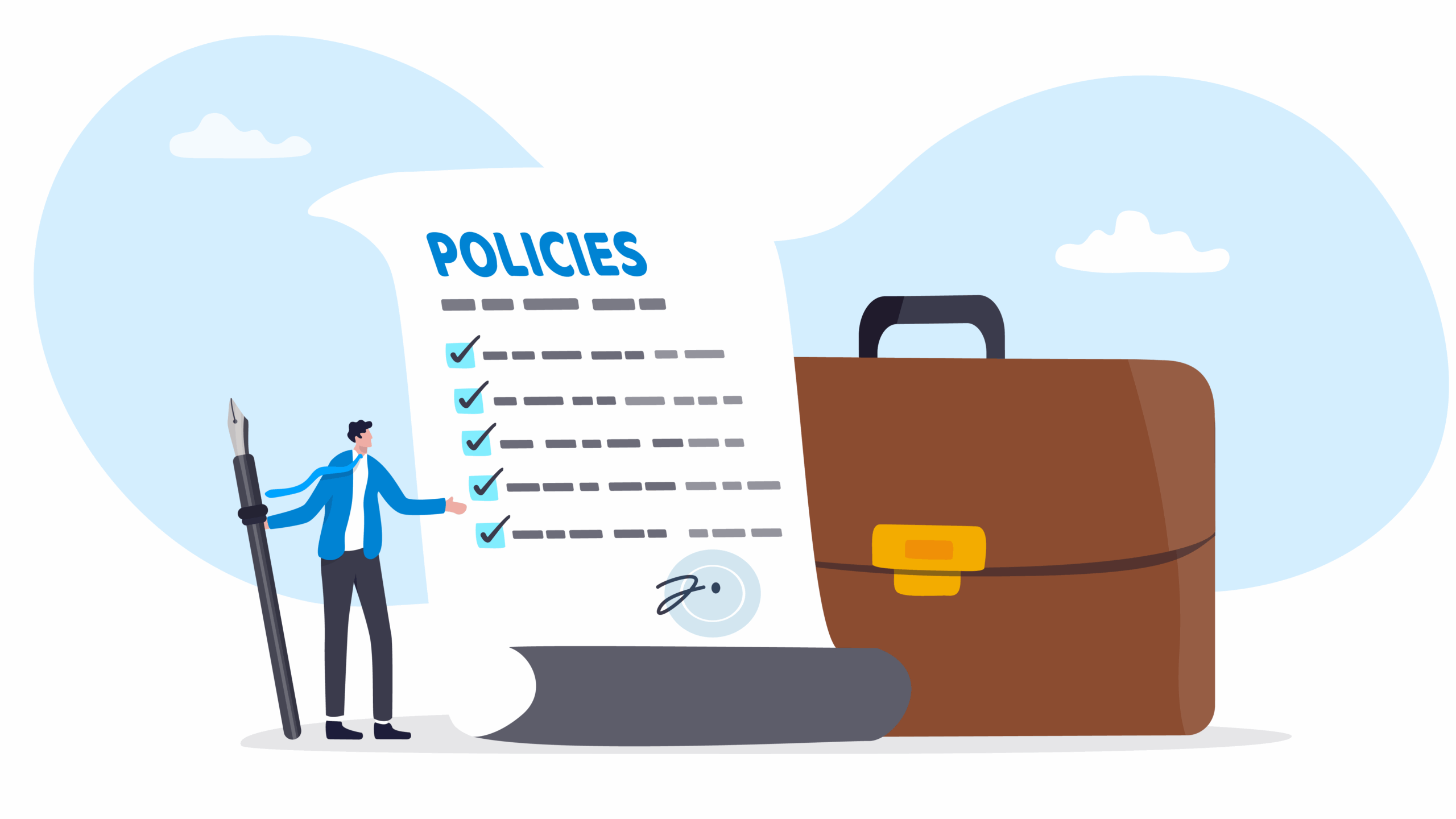Why succession planning and knowledge sharing are crucial to organisational success in summary:
- Good succession planning ensures business continuity by preparing internal candidates for leadership roles. It also helps mitigate disruptions, preserves organisational knowledge and enhances employee morale.
- On the other hand, knowledge sharing fosters innovation, efficiency, and collaboration by disseminating skills and expertise. It also helps in supporting continuous employee development, and strengthening team collaboration.
- HR professionals should combine succession planning with knowledge sharing through regular assessments, comprehensive training programmes, cross-department collaboration, leveraging technology, fostering a learning culture, and regularly updating plans to secure long-term organisational success.
The UK’s economy may have rebounded back to being in reasonably good health of late, but a weakening job market threatens to spoil the party.
Organisations continue to find it incredibly difficult to hire the right people at the right time: leading to significant delays in operations, increased costs due to recruitment challenges, and holding back both productivity and growth. And the worst part? It’s not forecast to get any better any time soon…
So, given the UK labour market is stuck in a deep rut, what can you do as an HR professional to overcome the challenges of a limited talent pool? And better still, support long-term success, growth and workforce sustainability in your business?
Succession planning and knowledge sharing: ensuring continuity and stability
With the UK’s workforce shrinking, succession planning and knowledge sharing have never been more important. For HR professionals, championing these practices is crucial for ensuring that their organisations not only survive during tough economic times, but thrive in the face of change.
By proactively preparing for leadership transitions and fostering a culture of continuous learning and collaboration, you and your HR team can play a pivotal role in securing the long-term success and sustainability of the organisation, and enjoy several big benefits in return…
Succession planning: the key benefits for HR teams and businesses
-
Mitigating leadership gaps
Leadership transitions are inevitable: be they due to retirements, resignations, or unforeseen circumstances. But, by implementing a well-structured succession plan, you’ll be ensuring your organisation is prepared for these changes, reducing the risk of troublesome disruption in operations.
-
Promoting internal talent
By focusing on internal candidates for leadership roles, you’ll find it much easier to motivate and retain your best and brightest talent. As our own research into workplace satisfaction discovered, employees are more likely to stay with a company that invests in their growth and provides clear career advancement opportunities. So, why not first look within before resorting to searching externally?
-
Preserving organisational knowledge
Leaders who rise through the ranks bring with them a deep understanding of the company’s culture, values, and operations. This type of experience simply cannot be bought or hired – it takes time to develop! And time isn’t something many businesses can afford to spare. This continuity helps maintain stability and preserves the institutional knowledge that’s critical for more informed (and intelligent) decision-making.
-
Enhancing employee morale & engagement
Lastly, a transparent succession planning process can boost employee morale and engagement by demonstrating that you organisation values and recognises the contributions of its employees. This sense of appreciation and the promise of potential future opportunities can lead to higher job satisfaction and loyalty in the long term.
Of course, having a succession plan is only half the story. For any succession plan to be truly effective, you also need to build a culture of learning and knowledge sharing.
Knowledge sharing: building a culture of continuous learning
Knowledge sharing involves the spreading of skills, information, and expertise across an organisation. It’s a practice essential for fostering innovation, efficiency, and collaboration… not to mention retaining vital skills and knowledge which could be difficult to replace. Especially if your organisation operates in a niche or specialist industry.
If you can build a culture of continuous learning where knowledge sharing is commonplace, your business can look forward to some fantastic benefits, including:
-
Continuous innovation
When knowledge flows freely within an organisation, employees are better equipped to develop creative solutions and new ideas. Diverse perspectives and shared expertise can lead to breakthroughs that drive the company forward.
-
Increasing efficiency
Knowledge sharing eliminates redundancies and reduces the time spent on problem-solving. Employees can leverage the collective knowledge of their peers to find quicker, more effective solutions, enhancing overall productivity and supporting a more collaborative environment.
-
Supporting employee development
A culture of knowledge sharing empowers employees to learn from one another, fostering continuous professional development. This collaborative learning environment helps individuals enhance their skills and competencies, benefiting both their personal growth and the organisation’s performance.
-
Strengthening team collaboration
As mentioned earlier, when employees share knowledge, it fosters a sense of community and teamwork. Collaboration becomes easier, and trust is built as employees recognise the value of each other’s contributions. This cohesive work environment can improve overall organisational effectiveness and create more supportive work cultures.
Successfully integrating succession planning and knowledge sharing in your business
So, we now know the key benefits of both succession planning and knowledge sharing. But, for them to be truly effective, integration is key. This is because integrating succession planning with knowledge sharing can amplify the benefits of both practices… But, how can you do that effectively? Here are some top tips to do exactly that…
-
Identify knowledge gaps in your organisation
Conduct regular assessments to identify areas where knowledge gaps in your business exist – especially in critical roles. Understanding these gaps helps in tailoring learning and development programmes that address specific needs and prepare potential successors. Speaking of which…
-
Develop tailored learning programmes
Create learning and training programs that focus on both leadership development and technical skills. Encourage experienced employees to mentor and train potential successors, ensuring that valuable knowledge and expertise are transferred… But avoid a ‘one size fits all’ approach! To discover how to create learning programmes that really resonate with your employees, just hit this link.
-
Encourage cross-department collaboration
Promote initiatives that encourage employees from different departments to collaborate and share knowledge. This cross-functional approach can uncover hidden talents and provide a broader understanding of the organisation’s operations.
-
Leverage HR technology
If you’re looking to kick-start learning and knowledge sharing, powerful HR systems that include an integrated Learning Management System (or LMS) can make it a heck of a lot easier! They can make it easier to document, store and access valuable learning materials… making upskilling and reskilling employees much more effective.
-
Reward learning and collaboration
Encourage a culture where continuous learning and knowledge sharing are valued, rewarded and recognised. Recognise and celebrate employees who actively contribute to knowledge sharing and succession planning efforts, and reward those who go above and beyond to support collaboration efforts.
-
Regularly review and update plans
Lastly, succession planning and knowledge sharing should be dynamic processes – it your initiatives shouldn’t be set in stone! So, regularly review and update your plans to reflect changes in the organisation’s goals, market conditions, and employee development.

Paul Bauer
Paul Bauer is the Head of Content at Cezanne HR. Based in the Utopia of Milton Keynes (his words, not ours!) he’s worked within the employee benefits, engagement and HR sectors for over four years. He’s also earned multiple industry awards for his work – including a coveted Roses Creative Award.










